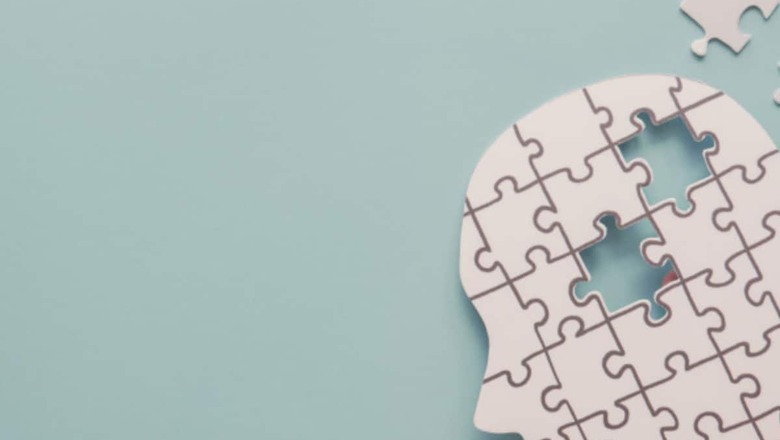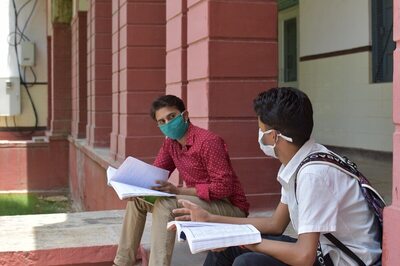
views
Did you know Alzheimer’s disease is not a natural part of ageing? Instead, it is a progressive neurological disorder that hampers memory and thinking abilities. It silently affects the brain, erasing memories, eroding cognition, and changing behaviours. It’s the leading cause of dementia, encompassing various cognitive challenges that disrupt daily life. This isn’t just an individual’s struggle; it’s a challenge that families, caregivers, and communities must confront.
Alarming Statistics
About 55 million people are believed to be suffering from Alzheimer’s disease and related dementias. Shockingly, this number could swell to a staggering 152 million by 2050. In India – in 2020, there were 2 million cases of Alzheimer’s. Brace yourselves, for this number might leap to 2.7 million by 2030. These figures are not mere statistics; they underscore the urgency to spread awareness and act promptly.
Dr Aman Priya Khanna highlights the need for taking prompt action. Through empathy, knowledge, and compassion, we can truly make a difference in the lives of those affected. So, as we mark ‘World Alzheimer’s Day,’ let’s dive into why raising awareness matters now more than ever. Why? Because, as of today, a cure remains elusive.
Understanding the Challenges Faced by Alzheimer’s Caregivers
Alzheimer’s disease affects both patients and their loved ones. Patients feel confused, fearful and frustrated as they lose their memories and independence.
Care for individuals with Alzheimer’s requires dedication, patience, and resilience. Uncertainty is a key difficulty for the caregivers as the disease is unpredictable, making it difficult to anticipate the needs and behaviours of those in their care. This unpredictability can also impact the emotional well-being of caregivers as they navigate daily struggles.
Many caregivers experience physical exhaustion from the round-the-clock efforts. Managing medications, appointments, and personal care tasks can be overwhelming. They experience sadness, frustration, and guilt as they witness their loved ones’ health deterioration.
According to Dr Khanna, providing care for individuals with Alzheimer’s requires resilience and patience, as caregivers carry the weight of emotional and physical burdens.
Raising Awareness and Providing Support
Supporting and empathising with the families is essential. Recognising the impact of this ailment, we have to shed light on their experiences and provide the necessary care and support. The Alzheimer’s Association raises awareness and advocates for better healthcare, while social media platforms like Facebook and Instagram serve as powerful tools for awareness campaigns. As a society, we can bring hope to the millions impacted by this disease.
Revolutionary Advancements in the Field of Dementia Research
Unveiling groundbreaking discoveries in the field of Alzheimer’s research, recent advancements have showcased innovative approaches and findings. Game-changing breakthroughs are shedding light on our understanding of the disease while cutting-edge technologies are being utilised to explore its complexities further. These developments can potentially revolutionise how we approach Alzheimer’s and its treatment.
One such revolutionary advancement being explored is Deep Brain Stimulation (DBS). The use of DBS in Alzheimer’s disease is still in the experimental stages and is considered a potential treatment option to manage symptoms rather than a cure. Researchers are investigating whether stimulating certain brain regions through DBS can improve cognitive function, memory, and overall quality of life for individuals with Alzheimer’s.
By staying at the forefront of research and embracing discoveries, we can pave the way for a future where the disease is better managed.
Nurturing Hope: Stories of Alzheimer’s Patients and Their Families
In the journey of better understanding, it is essential to shine a light on the stories of resilience and hope from Alzheimer’s patients and their families. These inspiring narratives celebrate the strength and determination of individuals, offering valuable insights into their experiences. The journey may be filled with challenges, but it also presents opportunities for growth and learning. Through personal anecdotes, we can witness the power of hope in facing this disease.
Understanding the connection between Alzheimer’s and mental health is crucial. Caregiving plays a vital role in supporting Alzheimer’s patients. These families’ stories emphasise collaboration among healthcare professionals, caregivers, and support networks for the well-being of those affected by the disease. By sharing these hopeful stories, we aim to raise awareness in public health.
How Can Society Contribute to the Cause?
Encouraging active participation in raising Alzheimer’s awareness and discussing ways individuals and communities can contribute to the fight against the disease. People’s s support can translate into more resources for research, inching us closer to effective treatments and, hopefully, a cure. When we push for policy reforms and make Alzheimer’s research a priority, we’re contributing to the mission of enhancing the patients’ lives.
Remember, when the public rallies behind a cause, change happens!
Unmasking the Power of Early Detection
Early detection isn’t just a medical term; it’s a lifeline. This isn’t just a sigh of relief for them; it’s a breath of respite for their loved ones. An early diagnosis empowers patients to adjust their lifestyles and diets, potentially slowing the relentless decline of their cognitive faculties.
Our Call to Action
Alzheimer’s is a relentless foe, but we’re not powerless against it. Our mission to raise awareness is paramount in a world where its prevalence is on the rise. By understanding the disease and recognising its symptoms, we must unite to transform the lives of affected individuals and their families. By becoming champions of Alzheimer’s awareness, we’re fueling initiatives that strive to conquer this adversary. Together, we can construct a society rooted in empathy that acknowledges the struggle and uplifts those who face it.
Dr Aman Priya Khanna closes with the sentiment: “How we collectively respond to Alzheimer’s shapes our identity. Let’s come together to create a meaningful impact.”



















Comments
0 comment